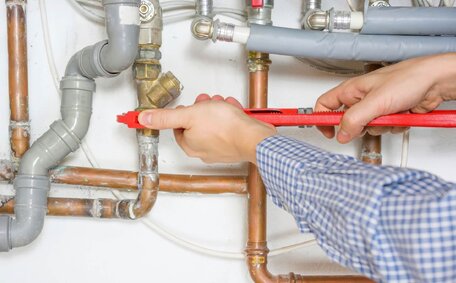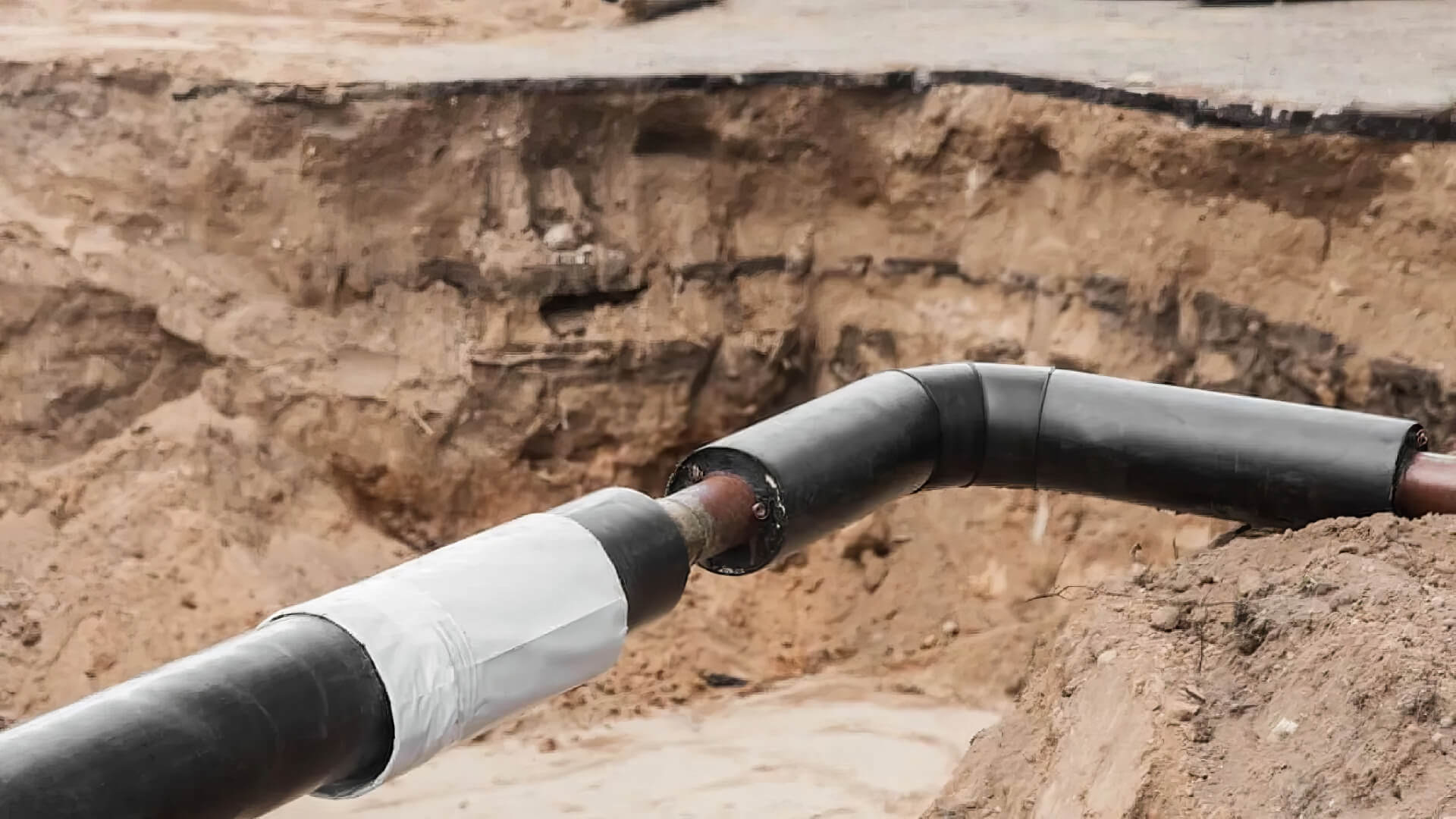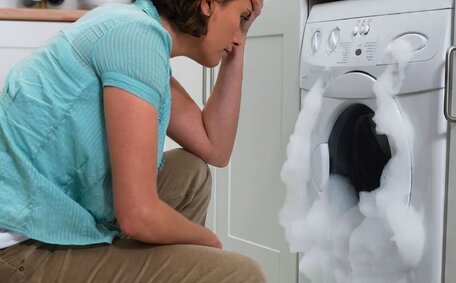
What’s involved in upgrading your gas meter?
Upgrading your gas meter is a simple process completed by qualified technicians. It involves disconnecting your gas supply for 15 minutes to swap the meter. Contact us today for a quote.
Read MoreA blocked drain can be a significant disruption and inconvenience in any household. That’s why it’s vital to proactively prevent blocked drains before issues arise.
From dirty standing water backing up into your home to foul odours permeating the air, clogged drains are a problem no homeowner wants to encounter.
As your local plumbing experts in Mortdale, we’ve compiled a list of DIY tips to ensure your drains stay clear and clog-free. By implementing small maintenance habits and being mindful of what goes down your sinks and toilets, you can dodge the costs and headaches associated with blocked drainage systems.
Read on for practical, everyday methods you can do to Ensure your drains and plumbing system operate smoothly for the long haul. These expert tips will help you manage your home’s drainage, bypassing emergency cleaning services.
Several common issues lead to blocked drains in many homes. Knowing these causes enables you to take preventive measures and maintain a well-functioning plumbing system.
Oil, grease, and fat accumulation in the pipes is one of the most common sources of drain blockages. As cooking oils like vegetable oil, butter, or bacon grease flow down drains, they congeal and build up, solidifying and coating the insides of pipes. This residue narrows pipes over time, causing slow drainage and eventually full blockages.
Food scraps washed down the drain are another major factor, especially starchy foods like rice, pasta, or potatoes. As food particles collect in your pipes, they attract grime and debris, forming obstructions that drains can struggle to manage.
Hair and soap scum accumulation can also wreak havoc on your drains. Strands of hair combined with sticky hair soap scum and shampoo residue cling to your pipes, forming dense clogs.
Moreover, diminutive items such as dental floss, Q-tips, or paper towels may wedge themselves into drain channels and instigate significant backups. Tree roots penetrating underground sewer lines can cause blockage, slowly infiltrating and cracking pipes.
By understanding common blockage causes, you can take action and establish habits to prevent clogs.
Adopt these simple habits to help maintain clear drains:
Small adjustments to your cleaning routines can significantly enhance the plumbing flow in your home. and preventing costly drain emergencies, but never hesitate to call a professional plumber if the situation demands expertise. Contact our blocked drain plumber if you suspect any brewing issues - we’re happy to inspect and maintain your drains.
Implement these actionable tips to keep your drains clear and avoid expensive professional interventions. Simple DIY techniques can help prevent clogs and maintain the health of your plumbing. Here are some of the most effective methods:
Consistent daily and weekly drain maintenance is key to sustaining your plumbing’s long-term function. Should your DIY initiatives falter, consider professional drain cleaning to avoid costly repairs; our Mortdale team stands ready to aid with preventive care and resolving tenacious clogs.
Though DIY maintenance can be effective, professional inspections are essential to identify issues that may not be apparent without expertise. Our experienced team uses advanced equipment to thoroughly examine for signs of blockages and identify potential pipe damage.
Our inspections reveal broken pipes not visible to the naked eye, such as minute fissures permitting tree roots to infiltrate your sewer line. We also pinpoint hidden clogs deep within your pipes where over-the-counter drain cleaners can’t reach.
Professional drain camera inspections at Mortdale Plumbing allow us to assess the interior condition of your pipes and diagnose any deteriorating sections. From pipe corrosion and buildup to alignment issues, We uncover potential issues early on so you can make informed decisions to prevent emergency blockages.
Scheduling annual drain inspections with our experts allows you to pre-empt concealed plumbing issues that could become more serious and circumvent costly repairs in the future. We’re happy to provide a free estimate, and can combine inspections with maintenance to restore your drains.
Don’t wait until you have a full clog on your hands - book a professional assessment today to keep your Mortdale home’s plumbing running smoothly for years to come.
Early detection of clogged drains is key to successful at-home clearance and preventing significant blockages. Here are some quick fixes you can try using when you notice the initial sign blocked drain presents:
Tackling a clogged drain promptly with at-home remedies can frequently remove blockages; however, if challenges arise, don’t hesitate to call us for expert intervention. Yet, if self-help methods aren’t effective, call us for professional assistance; our Mortdale plumbing crew possesses both the tools and know-how to tackle even severe clogs.
In addition to daily habits, establishing long-term maintenance practices is critical for addressing blockage issues. Take care to use a proactive, preventative approach to extend the lifespan of your Mortdale home’s plumbing dramatically.
For optimal performance of your hot water systems, consider installing a whole-house water softener to tackle hard water issues. Hard water’s high mineral content can also cause scale buildup in pipes over time, narrowing drainage openings. A water softener prevents this by filtering out calcium and magnesium.
Replacing old galvanized steel or clay pipes with modern PVC alternatives ensures you don’t end up with outdated materials that can easily become blocked. Newer pipes resist corrosion and buildup far better. Their smooth inner walls allow for optimum water flow.
Book hydro jet drain cleanings biennially to remove tenacious buildups. With our advanced equipment, we ensure thorough pipe cleansing and restored drainage.
Scheduled yearly drain camera inspections enable us to detect and address minor issues before they escalate. We can spot intruding roots or cracks early.
Maintain a regular maintenance schedule to ensure optimal plumbing health. Record weekly and monthly DIY maintenance tasks, schedule annual professional services, and note when ageing pipes require replacement.
Keep a detailed plumbing log of all inspections, including actions taken to clear your blocked drains, repairs, and maintenance. This provides a complete history to identify vulnerabilities and schedule preventative care.
Familiarise yourself with the location of main shut-off valves for emergency situations. Additionally, make sure isolating valves are accessible for each sink, shower, and toilet.
Regular checks of outdoor drainage areas are necessary to clear leaves, silt, and other debris. This prevention is crucial to avoid drainage backups.
Install sturdy metal drain covers over gully traps and floor drains to block foreign objects and prevent blockages.
Improve ventilation and airflow under your home to inhibit moisture damage and avoid damaging your pipes if you have a subfloor space.
Upgrading your gas meter is a simple process completed by qualified technicians. It involves disconnecting your gas supply for 15 minutes to swap the meter. Contact us today for a quote.
Read MoreWe use only the most durable, long-lasting and eco-friendly pipe relining materials such as PVC and epoxy resin to repair pipes without excavation.
Read MoreChemical drain cleaners contain toxic chemicals like sulfuric acid and sodium hydroxide that can damage pipes, disrupt septic systems, and harm humans if inhaled or make contact with skin. Avoid chemical drain cleaners and call Mortdale Plumbing at [phone] for safe, eco-friendly drain cleaning.
Read MoreMortdale, 2223 NSW
We will call back as soon as possible.




